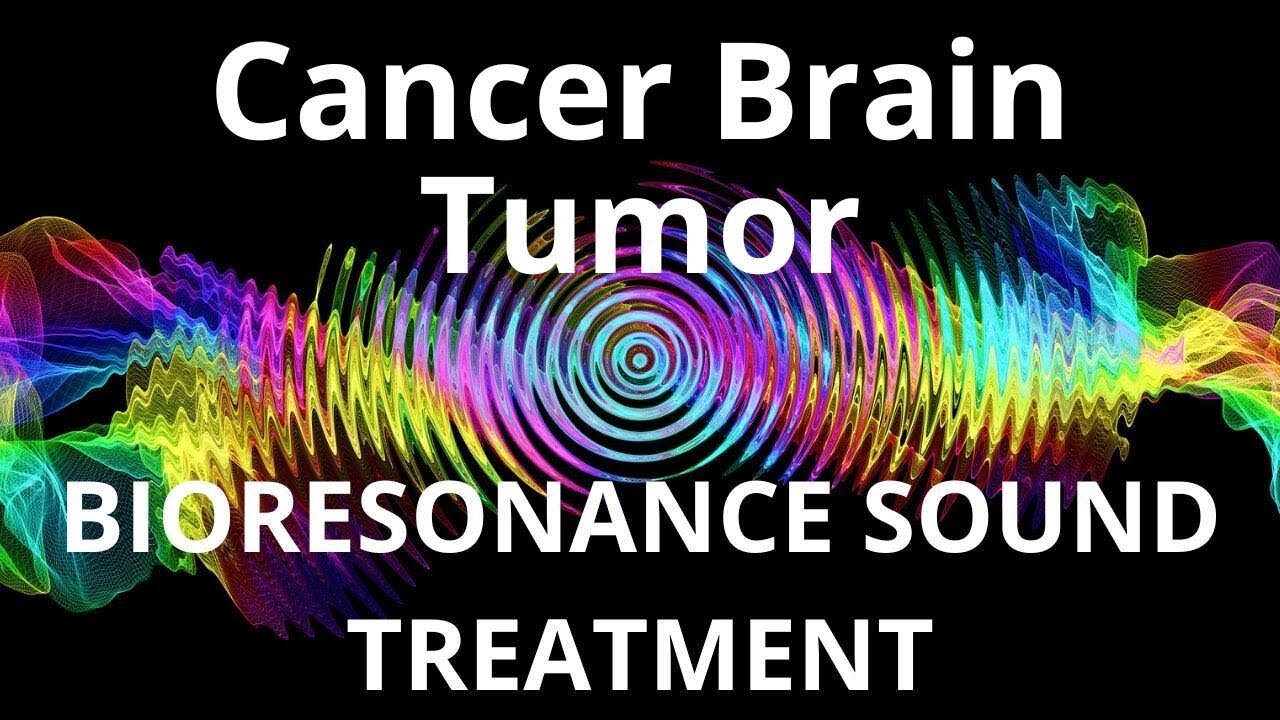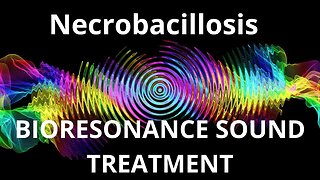Premium Only Content

Cancer Brain Tumor_Sound therapy session_Sounds of nature
#bioresonance #healingenergy #healingfrequencies #resonantfrequencytherapy #soundtherapy #adjunctivetreatment #cancer #braintumor #conventionalmedicine
Cancer brain tumors pose significant challenges in terms of treatment and management. While conventional medicine plays a vital role in addressing these tumors, the integration of adjunctive therapies, such as resonant frequency sound therapy, holds promise for enhancing outcomes. In this article, we will explore the potential benefits of using resonant frequency sound therapy as an adjunctive treatment alongside conventional medicine for cancer brain tumors.
Resonant frequency sound therapy is a non-invasive treatment modality that utilizes specific sound frequencies to target and stimulate healing responses in the body. It is based on the belief that each organ and cell within our body has its unique resonant frequency, and disruptions to these frequencies can result in illness or imbalance. Resonant frequency sound therapy aims to restore harmony by applying targeted sound frequencies to the affected areas.
Adjunctive Treatment for Cancer Brain Tumors:
1. Enhancing Conventional Treatments: Resonant frequency sound therapy can complement conventional cancer treatments such as surgery, radiation therapy, and chemotherapy. By promoting relaxation, reducing stress, and supporting overall well-being, it has the potential to enhance the effectiveness of these treatments. Cancer brain tumor patients often experience physical and emotional stress, and sound therapy can help alleviate these burdens.
2. Pain Management and Symptom Relief: Cancer brain tumors can cause significant pain and discomfort. Resonant frequency sound therapy has shown promise in alleviating pain by triggering the release of endorphins, the body's natural painkillers. Additionally, it may help reduce symptoms such as headaches, nausea, and fatigue, thereby improving the quality of life for patients undergoing conventional treatment.
3. Emotional Support and Stress Reduction: A diagnosis of a cancer brain tumor can bring about substantial emotional distress. Resonant frequency sound therapy has a calming effect on the nervous system, reducing stress and promoting emotional well-being. By creating a serene environment and supporting relaxation, it can help patients cope with the emotional challenges associated with their condition.
4. Cognitive Function and Quality of Life: Cancer brain tumors can impact cognitive function, memory, and overall quality of life. Resonant frequency sound therapy has been found to improve cognitive function and mental clarity. It may also enhance sleep quality, which is essential for brain health and overall well-being. By addressing these aspects, sound therapy can contribute to a better quality of life for patients.
5. Supporting the Immune System: Cancer treatments can weaken the immune system, leaving patients vulnerable to infections and other complications. Resonant frequency sound therapy has been shown to enhance immune function by stimulating the production of immune cells. This immune support can aid in the body's ability to fight off infections and support healing processes.
Conclusion:
While conventional medicine remains the cornerstone of cancer brain tumor treatment, the integration of adjunctive therapies like resonant frequency sound therapy holds significant potential. By enhancing conventional treatments, managing pain and symptoms, providing emotional support, improving cognitive function, and supporting the immune system, sound therapy offers a holistic approach to cancer care.
TO ACHIEVE A POSITIVE RESULT, DAILY LISTENING TO VIDEOS IS REQUIRED.
I wish you health and prosperity!
You can purchase unique medicines in my store:
https://store11998180.company.site/
You have the opportunity to support the channel:
https://destream.net/live/RadSiarAl/donate
-
 29:59
29:59
BIORESONANCE SOUND THERAPY
16 days agoNecrobacillosis _ Sound therapy session _ Sounds of nature
75 -
 13:24
13:24
Peter Boghossian
3 days agoWhy Can't TRANS People Answer This Simple Question, "What Is Trans?"
1902 -
 LIVE
LIVE
The Shannon Joy Show
1 hour ago🔥🔥Could Trump Trigger The Globalist Great Reset?🔥🔥
204 watching -
 LIVE
LIVE
Trumpet Daily
50 minutes agoTrumpet Daily LIVE | Sept. 9, 2025
422 watching -
 27:46
27:46
Rethinking the Dollar
1 hour agoUS Jobs Report DECEPTION – Precious Metals Smell Blood (Fed To Cut BIG) | Morning Check-In: Let's Talk...
5.58K2 -
 1:00:08
1:00:08
VINCE
3 hours agoBREAKING: Trump Goes To 'War' In Chicago | Episode 121 - 09/09/25
146K128 -
 LIVE
LIVE
LFA TV
6 hours agoLFA TV ALL DAY STREAM - TUESDAY 9/9/25
4,830 watching -
 1:34:42
1:34:42
Dear America
4 hours agoTrump DESTROYS Dems: ‘Blood On Their Hands!’ — America Won’t Survive Without Law & Order”
84K49 -

Nerdrotic
5 hours ago $2.87 earnedUFO Disclosure Hearing LIVE REACTION - Forbidden Frontier #116
27.9K7 -
 29:06
29:06
Clownfish TV
3 hours agoRIP YouTube! It Hurt Itself in Its Confusion... | Clownfish TV
18.1K15